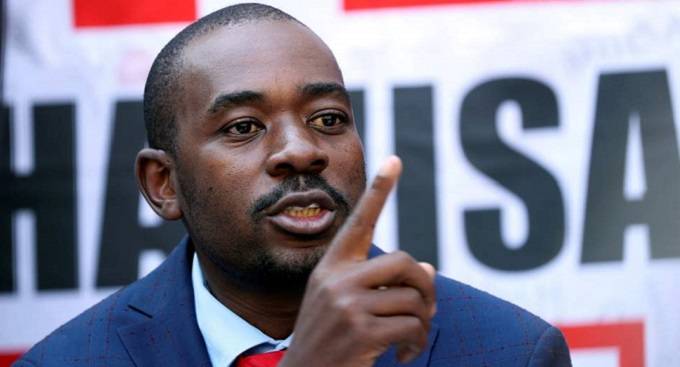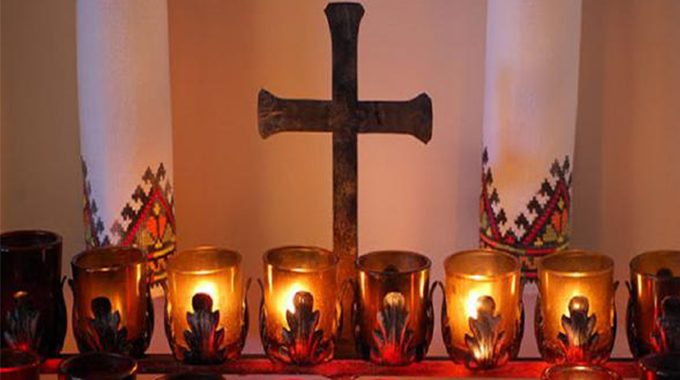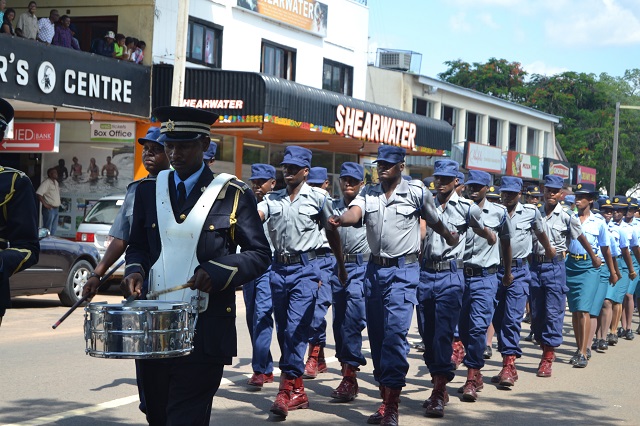Political dialogue immobilises Chamisa’s divisive politics

Cuthbert Mavheko
While Zimbabweans have largely moved on with life, following the 30 July 2018 harmonised elections, which President ED Mnangagwa and Zanu-PF won resoundingly, MDC- Alliance leader Nelson Chamisa has apparently taken a very dangerous turn in the wrong direction by inciting ordinary Zimbabweans to revolt against the Government.
Church leaders last month launched a scathing attack on Chamisa for plotting to dislodge a democratically-elected government violently. This was after a report appeared in the social media, urging workers to stay away from work.
“We want to make it clear that, as churches and civic society, we will expose those involved in organising these economic sabotage activities, aimed at putting our lives in jeopardy,” said one bishop.
Readers may recall that after the results of last year’s presidential poll were announced, Chamisa held a plethora of press conferences, where he told the nation, and indeed the entire world, that he had won the elections by 56 percent and must be declared the winner.
To prove his claims, he took his case to the Constitutional Court, saying he had overwhelming evidence to validate his assertions and would present this evidence in court to overturn the results of the poll, which gave 50,67 percent of the vote to President Mnangagwa and 44,3 percent to him.
I believe it was by providence that the Constitutional Court hearing was screened live on ZBCtv. This gave everyone the opportunity to follow proceedings and awaken to the reality that Chamisa did not have a shred of evidence to substantiate his claims that the elections had been manipulated. This exposed him as an unadulterated liar.
Having tried unsuccessfully to reverse Cde Mnangagwa’s electoral victory in the Constitutional Court, Chamisa chose the path of violence.
Indeed, it presents a painful paradox that youths, who engage in violent demonstrations organised by Chamisa, fail to see that he is using them as cannon fodder to achieve his selfish objectives. Once he has done this, he will dump them like used condoms.
In retrospect, we note that soon after the horrific explosion of violence in Harare’s Central Business District on August 1, 2018, Chamisa appeared on ZBCtv, where he not only distanced himself from the violent disturbances, but also castigated his supporters, who had perpetrated the violence, saying they were stupid. All this portrays Chamisa as a very cunning, shifty and deceptive individual who just cannot be trusted.
It is an open secret that Zimbabweans are generally a peace-loving people and are guided by the spirit of ubuntu/hunhu. While they do not have too many differences, what is now dividing them is the politics of polarisation being pursued by Chamisa, who is bereft of ideas to make the economy tick again and only seeks personal glory and self-aggrandisement.
As I see it, if Zimbabweans swallow Chamisa’s divisive politics hook, line and sinker, one day we may find ourselves with a society where people who belong to different political parties cannot have a drink together. Indeed, that would be a tragic scenario.
It cannot be over-emphasised that by inciting the general citizenry to engage in violent demonstrations against the Government, the war-mongers in the MDC-Alliance are actually undermining peace and stability in the country.
Truth be told, bloody conflicts are raging in most African countries like Nigeria, Chad and Cameroon, where the insurgent group Boko Haram has, over the years, butchered thousands of innocent men, women and children.
The irony of ironies is that while Zimbabwe is one of the most peaceful countries in the world, some Western and European countries continue to peddle falsehoods that the country is a very unstable and dangerous place to visit or stay. This absurdity is worse than a cruel lie and should be dismissed with the contempt that it rightly deserves.
The honest truth, which the international community must swallow in huge gulps, is that foreign tourists are today descending on the country like a swarm of bees on a honeycomb. They cavort about the country’s resort centres freely, without fear of being attacked by machete or gun-wielding bandits.
There are many fellow Africans in the region and beyond who long for the peace and stability that we have here. Shockingly though, some of us are taking that peace and stability for granted.
What offends my own moral sensibilities is that some political clowns and charlatans in the MDC- Alliance are abusing the democratic space in the country to travel all over the world to ask for the imposition of sanctions against their own country. These miscreants are committing treason and should be incarcerated. In some countries where Sharia law is practised, treason is a very serious offence, which carries the death penalty.
Chamisa has caused so much misery and suffering in the country. He should not be allowed anywhere near executive power. For with great power, comes great responsibility.
Abraham Lincoln once said: “Nearly all men can stand adversity, but if you want to test a man’s character, give him power.”
Well, Chamisa has already been tried and tested, and has been found wanting. When we examine what he has done with the limited power that he has, we find that he has abused it left, right and centre.
For instance, as an advocate and a member the MDC — a party that was formed to champion the rights of the workers — Chamisa acted irresponsibly when he, on 17 July 2015, colluded with employers in a case involving two former Zuva Petroleum managers, who were challenging the termination of their contracts on notice.
This case triggered an avalanche of job losses countrywide, with over 20 000 once gainfully employed workers being sacrificed on the altar of joblessness as employers said they were exercising their rights in terms of the common law and in tandem with the interpretation of that law by the Supreme Court.
To rub salt to injury, as the president of the MDC-Alliance, Chamisa has orchestrated a spate of violent demonstrations, which have culminated in the loss of human life and the destruction of property worth millions of dollars.
The foregoing notwithstanding, President Mnangagwa has continued to preach the gospel of peace, unity and reconciliation, even in the face of adversity.
The President took his peace and reconciliation overtures to a higher level last month when he opened avenues for dialogue with 21 opposition parties, which participated in the 2018 harmonised elections. True to his nature, Chamisa snubbed the talks, together with National Peoples’ Party leader, Joyce Mujuru.
While officially opening the inaugural session of the Zimbabwe-Botswana Bi-National Commission in Harare recently, President Mnangagwa said he had opened dialogue with other political parties to ensure that they also have a say in the country’s government discourse.
“My administration continues to push for greater national peace, unity, harmony and cohesion; fully aware that a nation at peace with itself is a nation that can achieve socio-economic development,” said President Mnangagwa.
The inter-party dialogue initiated by President Mnangagwa is a marvellous antidote to the politics of polarisation that has dogged the country since Chamisa assumed the leadership of the MDC-T. The dialogue affirms the political maturity of the people of Zimbabwe and their determination to rise above partisan politics and embrace the noble ideals of peace, unity and collaboration for the greater good of the nation.
-Cuthbert Mavheko is a freelance journalist based in Bulawayo. Contact details: Mobile phone 0773 963 448. [email protected]








Comments